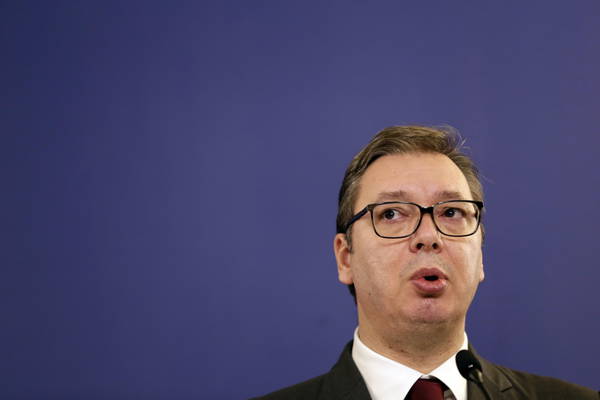Is Lavrov's cancelled visit a win-win for Serbia?
Belgrade has been trying to tread a delicate balancing act
08 June, 11:05"The only possible way for Lavrov to come was through a pipeline," he quipped, referring to the gas deal. - A 'provocation' all along? - Lavrov's arrival could have caused a diplomatic backlash from Brussels, experts say. After local media speculated that German chancellor Olaf Scholz would have cancelled his planned trip to Belgrade Friday, Vucic said such a development "would have been a tragedy". Some seasoned diplomats believe Lavrov's visit was nothing more than a "provocation" by Moscow in the first place.
The Russian diplomat already had to cancel a trip to Switzerland for disarmament talks in late February after the EU closed its airspace to Russian aviation. And it was highly unlikely that Russia thought he would make it through EU airspace this time either, former Serbian ambassador to Belarus Srecko Djukic said.
"The core political message of this visit would have been breaching EU sanctions and presenting them as meaningless," Djukic told AFP. Serbia also played along by "either accepting or initiating Lavrov's visit", Djukic said, adding that its double game with the Kremlin in such a delicate situation is the "opposite of having a foreign policy". "Serbia keeps on ignoring the circumstances, completely unable to grasp the world we live in," Djukic insisted. - Pro-Russian sentiment - The two predominantly Slavic and Orthodox Christian countries are united by deep fraternal ties, along with steadfast military alliances dating back beyond World War I. Moscow has remained Belgrade's crucial diplomatic ally thanks to its ironclad backing of Serbia's claim over the breakaway province of Kosovo, blocking any formal recognition of the territory's independence at the UN. For years, pro-government Serbian media outlets backed by Vucic have echoed the Kremlin line and have portrayed Putin as a model statesman. That glowing coverage as well fresh memories of NATO's bombing of Serbia during the 1999 Kosovo war cemented pro-Russian sentiment -- a huge base of support that Vucic needs to appease. According to a recent poll, 40 percent of Serbs would be "happy" if the country gave up trying to join the EU and formed an alliance with Russia instead. The same survey suggests that almost three quarters of Serbs believe Russia was forced to engage in conflict in Ukraine because of NATO's expansion, while over half believe Moscow is trying to "prevent genocide" in the Donbas. As millions across the globe have shown their support of Ukraine, Serbia has emerged as a rare outliner with huge crowds attending pro-Russian rallies and donning shirts emblazoned with the infamous "Z" signs. Despite the emotional connection to Moscow, Serbia is deeply dependent on the EU, by far its most important trade partner. According to Serbian authorities, total exchanges between EU and Serbia exceeded 30 billion euros ($32.2 billion) last year, almost 14 times its business with Russia. Amid controversy about Lavrov's visit, Vucic underlined Serbia's somewhat ambivalent commitment to joining the bloc. "Serbia has to hurry up on its European path -- no matter if this sounds contradictory -- because it's best for Serbia," he said. "Is it pretty to picture that in our heads? Not necessarily, but it's best for our children," he added. (ANSA-AFP).














